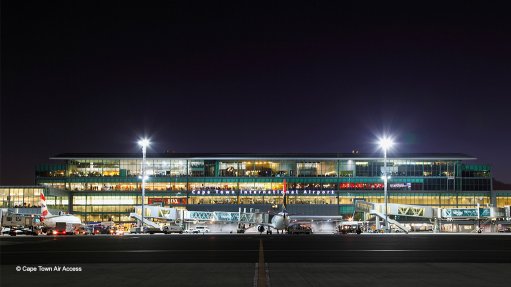Economic freedom
If freedom is “the power or right to act, speak, or think as one wants”, what does economic freedom mean? Evidently ‘freedom’ and ‘economic freedom’ tend to be expressed in four pillars.
The late former US President, Franklin D Roosevelt, identified four fundamental freedoms that everyone ought to enjoy: freedom of speech, freedom of worship, freedom from want and freedom from fear.
Returning to ‘economic freedom’ – according to the Heritage Foundation, economic freedom is: “The fundamental right of every human to control his or her own labour and property. In an economically free society, individuals are free to work, produce, consume, and invest in any way they please. In economically free societies, governments allow labour, capital, and goods to move freely, and refrain from coercion or constraint of liberty beyond the extent necessary to protect and maintain liberty itself.”
Why do I find the foundation’s definition of economic freedom compelling? Each year since 1995, the foundation has published its ‘Index of Economic Freedom’, created with The Wall Street Journal, to measure the degree of economic freedom in the worldʼs nations. The index’s creation is said to have been inspired by Adam Smith, the acknowledged father of economics, who wrote in An Inquiry into the Nature and Causes of the Wealth of Nations, published in 1776, that “basic institutions that protect the freedom of individuals to pursue their own economic interests result in greater prosperity for the larger society”.
The ‘Index of Economic Freedom’ is based on 12 quantitative and qualitative factors that are grouped into four pillars of ‘economic freedom’: rule of law (property rights, government integrity, judicial effectiveness); government size (government spending, tax burden, fiscal health); regulatory efficiency (business freedom, labour freedom, monetary freedom); and open markets (trade freedom, investment freedom, financial freedom).
The index consists of 177 countries. On the 2022 index, South Africa’s ‘world rank’ is 112 (in the bottom third), with its ‘regional rank’ being 17 out of 47 sub-Saharan African countries. This is quite a shock, as is South Africa’s steadily worsening rating since 2017.
These are by no means the only four pillars of economic freedom. The late former US President, Ronald Reagan, spoke of “our essential economic freedoms”, these being: freedom to work (to pursue one’s livelihood in one’s own way, to choose where one will locate and what one will do to sustain individual and family needs and desires); freedom to enjoy the fruits of one’s labour (to keep for oneself and one’s family the profit or gain earned by honest effort); freedom to own and control one’s property (to trade or exchange property and not to have it taken through threat or coercion); and freedom to participate in a free market (to contract freely for goods and services and to achieve one’s full potential without government limits on opportunity, economic independence and growth).
For its part, the Fraser Institute describes the four cornerstones of ‘economic freedom’, what it also refers to as ‘economic liberty’, within the context of “the ability of people of a society to take economic actions to”: have personal choice, and to exercise voluntary exchange coordinated by markets and freedom to enter and compete in markets, as well as protection of persons and their property from aggression by others.
This begs the question: Why, after “the long walk to freedom”, haven’t South Africans achieved economic freedom? Quite simply, South Africans have been, and are continuing to be, failed by those they elected. What happened to government’s 1994 election slogan of “a better life for all”?
Could it be that, after 246 years, Adam Smith’s words still ring true – that there are two factors that dim the prospects of economic freedom’: “Not only the prejudices of the public, but what is much more unconquerable, the private interests of many individuals, irresistibly oppose it”?
Article Enquiry
Email Article
Save Article
Feedback
To advertise email advertising@creamermedia.co.za or click here
Announcements
What's On
Subscribe to improve your user experience...
Option 1 (equivalent of R125 a month):
Receive a weekly copy of Creamer Media's Engineering News & Mining Weekly magazine
(print copy for those in South Africa and e-magazine for those outside of South Africa)
Receive daily email newsletters
Access to full search results
Access archive of magazine back copies
Access to Projects in Progress
Access to ONE Research Report of your choice in PDF format
Option 2 (equivalent of R375 a month):
All benefits from Option 1
PLUS
Access to Creamer Media's Research Channel Africa for ALL Research Reports, in PDF format, on various industrial and mining sectors
including Electricity; Water; Energy Transition; Hydrogen; Roads, Rail and Ports; Coal; Gold; Platinum; Battery Metals; etc.
Already a subscriber?
Forgotten your password?
Receive weekly copy of Creamer Media's Engineering News & Mining Weekly magazine (print copy for those in South Africa and e-magazine for those outside of South Africa)
➕
Recieve daily email newsletters
➕
Access to full search results
➕
Access archive of magazine back copies
➕
Access to Projects in Progress
➕
Access to ONE Research Report of your choice in PDF format
RESEARCH CHANNEL AFRICA
R4500 (equivalent of R375 a month)
SUBSCRIBEAll benefits from Option 1
➕
Access to Creamer Media's Research Channel Africa for ALL Research Reports on various industrial and mining sectors, in PDF format, including on:
Electricity
➕
Water
➕
Energy Transition
➕
Hydrogen
➕
Roads, Rail and Ports
➕
Coal
➕
Gold
➕
Platinum
➕
Battery Metals
➕
etc.
Receive all benefits from Option 1 or Option 2 delivered to numerous people at your company
➕
Multiple User names and Passwords for simultaneous log-ins
➕
Intranet integration access to all in your organisation
















